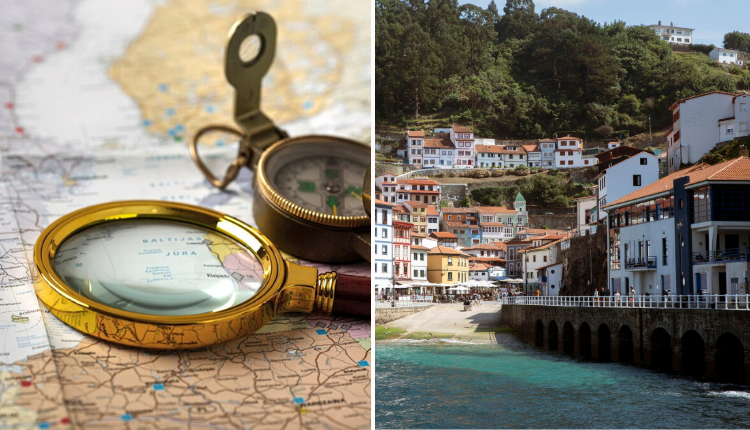Portuguese explorers were key figures in the Age of Discovery, shaping the course of global history through their voyages of exploration and trade. Their daring expeditions opened new sea routes, established overseas colonies, and brought diverse cultures into contact. This article explores the notable Portuguese explorers who made significant contributions to the world’s geographical and cultural landscape.
Key Portuguese Explorers
1. Ferdinand Magellan (c. 1480 – 27 April 1521)
Ferdinand Magellan, with an HPI of 91.30, stands out as the most famous Portuguese explorer. Known for leading the first expedition to circumnavigate the globe, Magellan’s journey marked a significant milestone in maritime history. Although he died in the Philippines during the voyage, his fleet successfully completed the trip back to Spain in 1522. Magellan’s voyage demonstrated the feasibility of sailing west to reach the East Indies and opened new sea routes, fundamentally altering global navigation.
2. Vasco da Gama (c. 1460s – 24 December 1524)
Vasco da Gama ranks second with an HPI of 89.42. He is celebrated for being the first European to reach India by sea. His voyage around the Cape of Good Hope in 1497–1499 connected Europe and Asia via an ocean route, paving the way for Portuguese colonial dominance in Asia. Da Gama’s discovery of the sea route to India was a critical moment in global trade and Portuguese exploration, establishing a lasting maritime empire.
3. Bartolomeu Dias (c. 1450 – 29 May 1500)
Bartolomeu Dias, holding an HPI of 81.98, was a key figure in the early stages of Portuguese exploration. In 1488, he became the first European navigator to round the Cape of Good Hope, proving that a sea route to Asia was possible. His exploration confirmed that ships could navigate around the southern tip of Africa, opening the way for future voyages to India and beyond.
4. Prince Henry the Navigator (4 March 1394 – 13 November 1460)
Prince Henry the Navigator, with an HPI of 76.85, is known as the catalyst of the Age of Discovery. As a patron of exploration, he initiated voyages that explored the west coast of Africa and sought new routes to Asia. His support for maritime exploration helped lay the groundwork for Portugal’s eventual dominance in global exploration and trade.
5. Pedro Álvares Cabral (c. 1467 or 1468 – c. 1520)
Pedro Álvares Cabral, with an HPI of 76.09, is renowned for discovering Brazil in 1500. His expedition, which also reached India, was notable for its route across four continents. Cabral’s exploration of Brazil and subsequent voyages helped establish Portuguese claims in South America, significantly impacting the Portuguese Empire’s expansion.
6. Diogo Cão (c. 1452 – 1486)
Diogo Cão, with an HPI of 65.23, made significant contributions by exploring the west coast of Africa in the 1480s. His voyages up the Congo River and along the coasts of Angola and Namibia provided valuable information about the African continent, enhancing European understanding of Africa’s geography.
7. Diogo Dias (c. 1450 – 1500)
Diogo Dias, known for his exploration of the Cape Verde islands alongside his brother Bartolomeu Dias, had an HPI of 64.32. His contributions to mapping and understanding the Atlantic islands played a crucial role in Portuguese maritime exploration.
8. Diego Columbus (1479/1480 – 23 February 1526)
Diego Columbus, with an HPI of 63.14, was a prominent navigator and the son of Christopher Columbus. He sought to reclaim his father’s legacy and served as the Admiral and Viceroy of the Indies. Despite facing challenges, his efforts contributed to the administration and expansion of Spanish territories in the New World.
9. Tristão da Cunha (c. 1460 – c. 1540)
Tristão da Cunha, holding an HPI of 62.31, was an influential Portuguese explorer and naval commander. He played a significant role in representing Portugal’s new conquests and served as an ambassador, showcasing the expanding Portuguese influence during his time.
10. João Gonçalves Zarco (c. 1390 – 21 November 1471)
João Gonçalves Zarco, with an HPI of 60.68, was a pioneering explorer who established settlements in the Madeira Islands. Appointed as the first captain of Funchal, his efforts were instrumental in the early Portuguese exploration and colonization of the Atlantic islands
Why Portuguese Explorers Matter
Portuguese explorers played a crucial role in expanding European knowledge of the world and establishing global trade networks. Their discoveries not only advanced geographical understanding but also facilitated cultural exchanges and economic development.
1. Expansion of Trade Routes
The sea routes established by Portuguese explorers created new opportunities for trade and economic growth. The direct maritime links to India and the Far East revolutionized global commerce.
2. Cultural Exchanges
The voyages led to increased contact between Europe and other continents, fostering cultural exchanges that influenced art, cuisine, and science across the world.
3. Scientific Advancements
Explorations led to advancements in navigation, cartography, and maritime technology, contributing to the broader field of science and exploration.
Quick Examples of Portuguese Exploration Impact
Scenario 1: Trade Expansion
- Person A: “How did Vasco da Gama’s voyage affect global trade?”
- Person B: “It opened a direct route to India, revolutionizing trade with Asia.”
Scenario 2: Cultural Influence
- Person A: “What was the cultural impact of Magellan’s expedition?”
- Person B: “It led to greater cultural interactions and exchanges between Europe and the Pacific islands.”
Conclusion
The legacy of Portuguese explorers is a testament to their courage, innovation, and impact on global history. Their voyages not only mapped unknown territories but also laid the foundation for modern international trade and cultural exchanges. Understanding their contributions helps us appreciate the profound effects of exploration on our world today.





